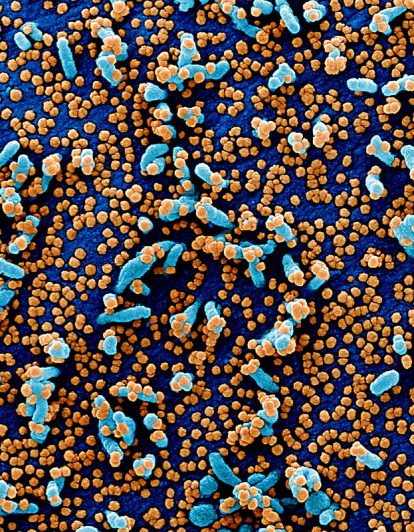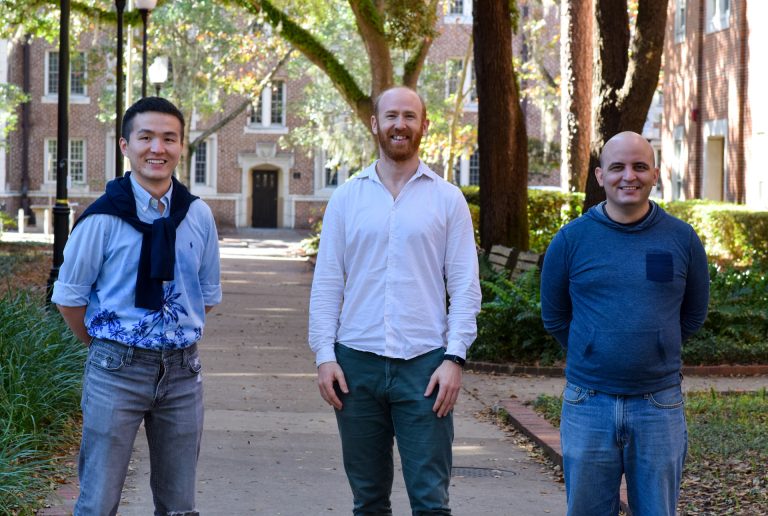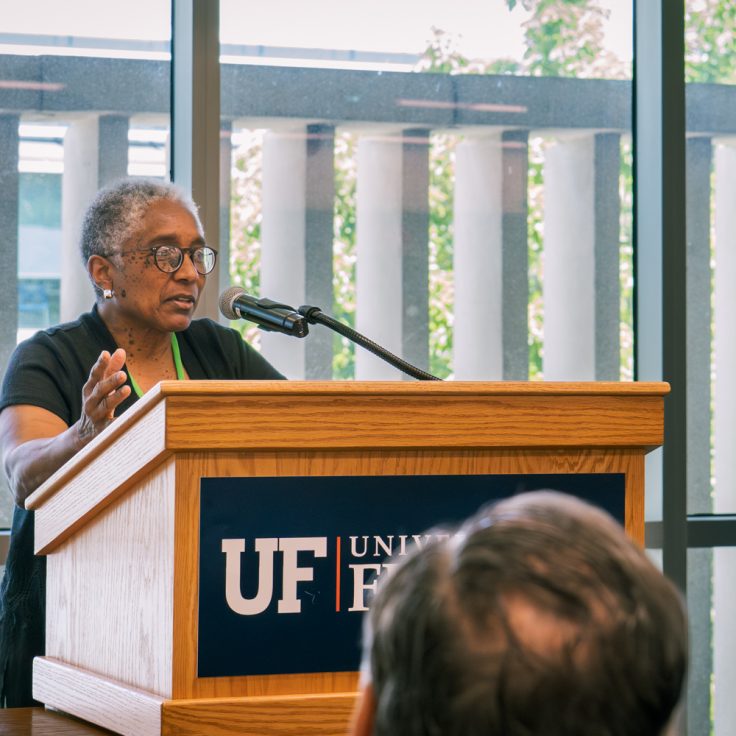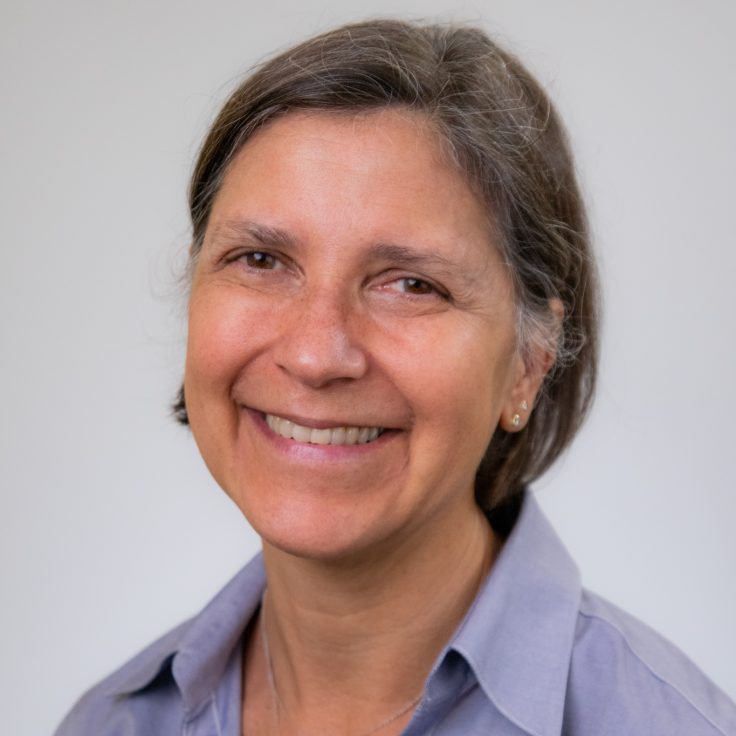Research Roundup
A snapshot of groundbreaking studies from college researchers seeking to discover more about mental and physical well-being
Tracking Brain Development as Children Grow

UF recently joined one of the largest early-brain development studies ever undertaken. The HEALthy Brain and Child Development Study aims to shed light on how early environments impact brain development — revealing positive and negative factors. The comprehensive study will follow thousands of pregnant people and their babies nationwide, including 400 participants enrolled by UF’s team.
UF researchers received a 5-year, $6.2 million grant from the National Institutes of Health to fund participation in the study, which involves 24 other research sites across the United States. Lisa Scott, professor and director of the Brain, Cognition and Development Laboratory in the Department of Psychology, will work with colleagues in the College of Medicine and the College of Public Health and Health Professions to lead UF’s contributions.
“We are thrilled to be able to bring the University of Florida into this consortium as one of the premier sites for examining early infant and child neural development,” Scott said.
Story first reported by Diana Tonnessen of UF Health. Read the full story here (opens in new tab).
Redefining the ‘Good’ Life

Erin Westgate, assistant professor of psychology, proposes adding a new dimension to the definition of a “good” life: psychological richness. The Greek philosopher Aristotle first theorized two types of lives well-lived: a “hedonic” path centered on happiness and pleasure versus a “eudaimonic” one concerned with a sense of meaning and purpose. Westgate sees a third option that embraces a variety of perspective-changing experiences.
Alongside social psychologist Shigehiro Oishi from the University of Virginia, Westgate conducted a study spanning nine nations to gain global perspectives on the “ideal” life. While happiness prevailed as the life pursuit of choice, between 7% and 17% of participants in each country said they would choose a psychologically rich life — even at the expense of achieving a happy or meaningful one.
Their proposal could offer an additional way to measure how people spend their time in pursuit of overall well-being. They note that their research “suggests that a good life may not always be pleasant and that there is value in leading lives that investigate different perspectives.”
This study was recently covered in Quartz (opens in new tab).
Boosting Resilience to Zoonotic Diseases
While COVID-19 was undoubtedly one of the most devastating zoonotic diseases to emerge, it was not the first. A zoonotic disease occurs when a pathogen jumps from animals to humans. Sadie Ryan, associate professor of medical geography and faculty in the Emerging Pathogens Institute (EPI), recently collaborated on two research studies examining tools that anticipate these leaps.

Allergy and Infectious Diseases (NIAID).
As human-to-animal interaction expands due to climate change and habitat loss, so does the demand for investigations into wildlife virology. Ryan’s first study, published in Nature Microbiology, reviews predictive modeling. The team created a collaborative network for modeling in viral ecology, called Verena (The Viral Emergence Research Initiative). Its goal is to encourage scientists to learn from one another in an organized database, while also preventing them from repeating the same analyses.
Ryan’s second study turns attention to the future — cataloging technologies that may be used to forecast zoonotic risks. Ryan also reports the growing need to address the ethical and logistical challenges posed by these data-driven methods.
Story first reported by DeLene Beeland of EPI. Read the full story here (opens in new tab).
The Shape of Things to Come
Like people, molecules come in all shapes and sizes. The variation in molecular forms can directly impact disease progression, drug efficacy and other important biological processes. To solve these mysteries, three chemists use machine learning to identify previously unknown similarities among the different shapes of living organisms’ molecules, including proteins and DNA.

Ramon A. Miranda Quintana and Alberto Perez, assistant professors of chemistry, along with graduate student Liwei Chang, taught algorithms to simultaneously compare thousands of different molecular states, bringing to light similarities that would have been missed by the traditional methods of directly comparing molecular relationships one-on-one.
Looking ahead, the researchers plan to collaborate with the College of Pharmacy to apply their methods to drug design. “This information is key in the biomedical sciences, since it will improve our understanding of diseases at a molecular level, leading to the design of more potent and selective treatments,” Miranda Quintana said.
Read the full story here (opens in new tab).
This story appears in the spring 2022 issue of Ytori Magazine. Read more from the issue.


